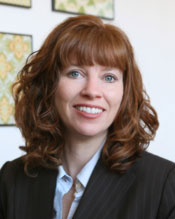
We are getting more and more impatient. Whether due to the digital revolution that puts the world at our fingertips, anywhere and anytime we want it or due to the acceleration of new innovations in general, we are increasingly not willingly to wait. I have been noticing this a lot lately- this reduction in the daily requirement to be patient and wait for something to come to me. In fact, this year I learned that you don’t even have to wait for your Girl Scout cookies anymore! Waiting a month for more for my boxes of Thin Mints used to be a way I could practice my own patience and delayed gratification. Now, as with most things, the Thin Mints are “on demand.” This led me to think about patience in general, and wonder if our sense of patience as caregivers is also declining, since we increasingly do not have to practice this virtue in our daily life.
When it comes to inclusion, patience is definitely not only a virtue, but also a requirement. Many practitioners that we work with at KIT are enthusiastic and eager to dash to the inclusion finish line. While we certainly admire their gusto, and we want them to take skillful action in ensuring that all children can meaningfully participate, we also want their inclusive practices to develop with care and thought and not with hasty, unplanned action. Inclusion will evolve and is a process, and not a product. This does not at all mean that you can wait to begin serving children with disabilities until you are ready. It means that inclusion itself is a practice that you will refine with each experience. To paraphrase the brilliant Maya Angelou “when you know better, you will do better.”
Practice patience- with yourself, your colleagues, the families you serve and most especially the children you spend your days with and you will find that inclusion unfolds naturally, before your eyes and within your heart.
Inclusion is…a process and a practice.



